Books
Books
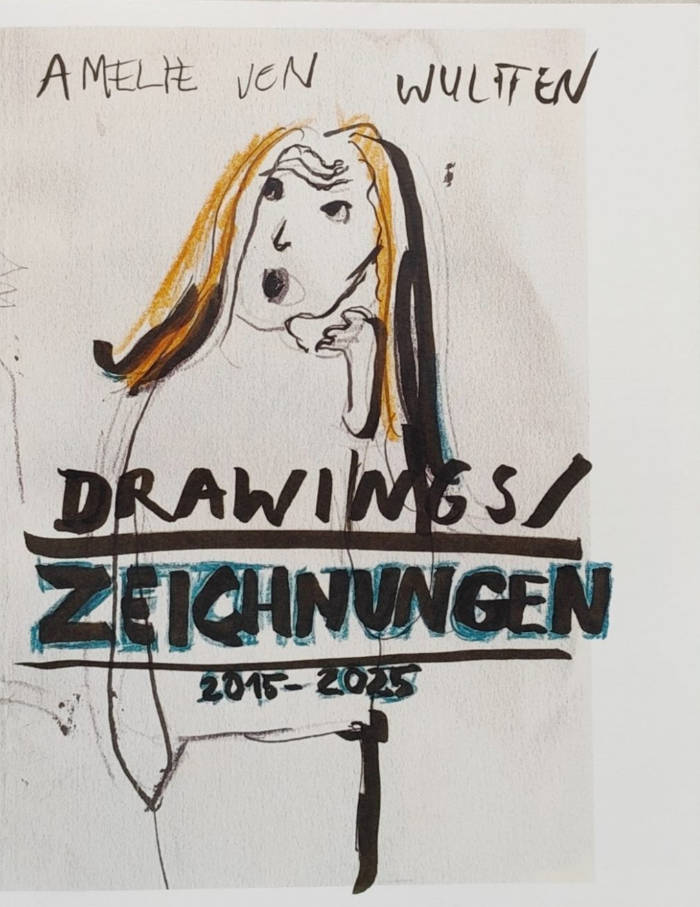
Drawings/Zeichnungen
A new compilation of Amelie von Wulffen's intriguing, very truth hard drawings and comics.
Amelie von Wulffen's Drawings/Zeichnungen is a fulminant new book featuring works from the last ten years that are being shown here for the first time. They are not primarily intended to be works of art; they differ from her comics and watercolors.
To mark her exhibitions at the Kölner Kunstverein and HFKD Holkstebro, Bierke Verlag is now publishing this collection of very direct and heterogeneous drawings, driven by a need to stay as close to the truth as possible. They deal with dreams and inner experiences, depicting generational conflicts, sexuality, death, and strong emotions with unfiltered harshness.
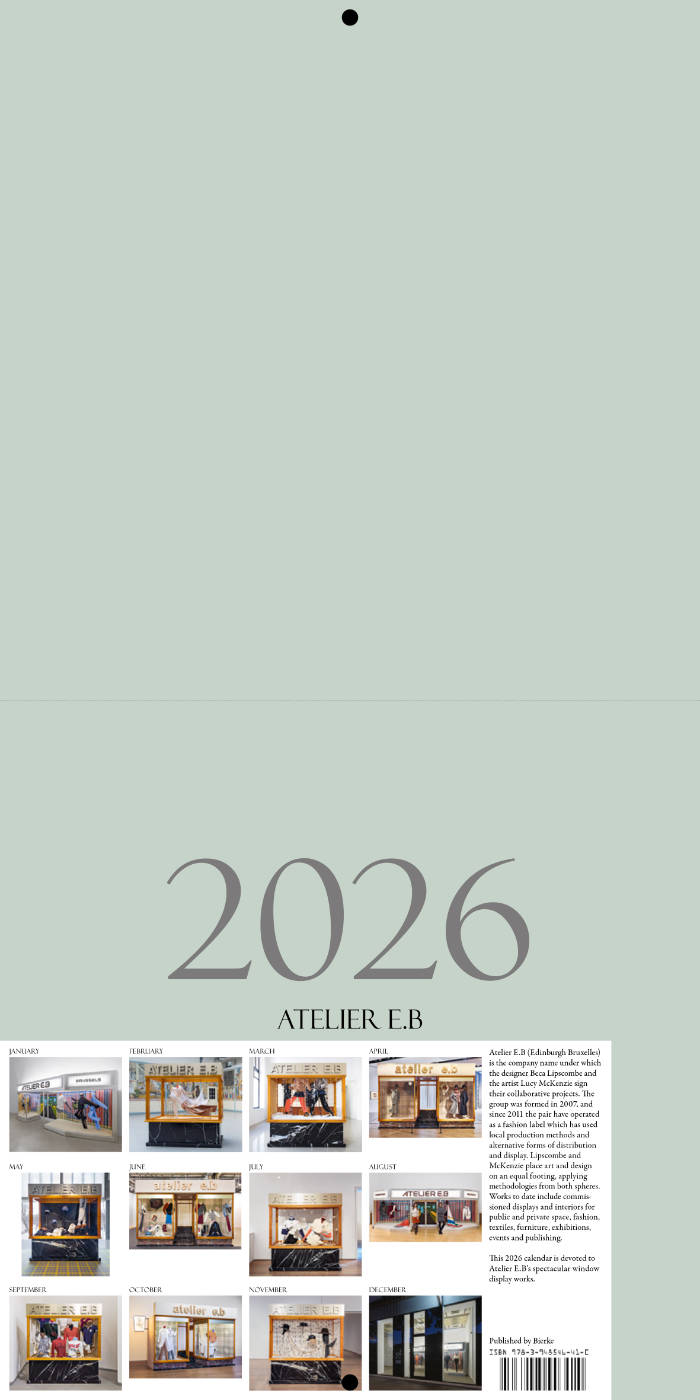
Atelier E.B 2026 Calendar
Atelier E.B's 2026 calendar is dedicated to the duo's spectacular window displays (2019-2025). These exhibitions feature garments from their fashion label arranged by professional window dressers—integrating the shopping experience into the exhibition context.
Atelier E.B (Edinburgh Bruxelles) is the company name under which designer Beca Lipscombe and artist Lucy McKenzie develop their joint projects.
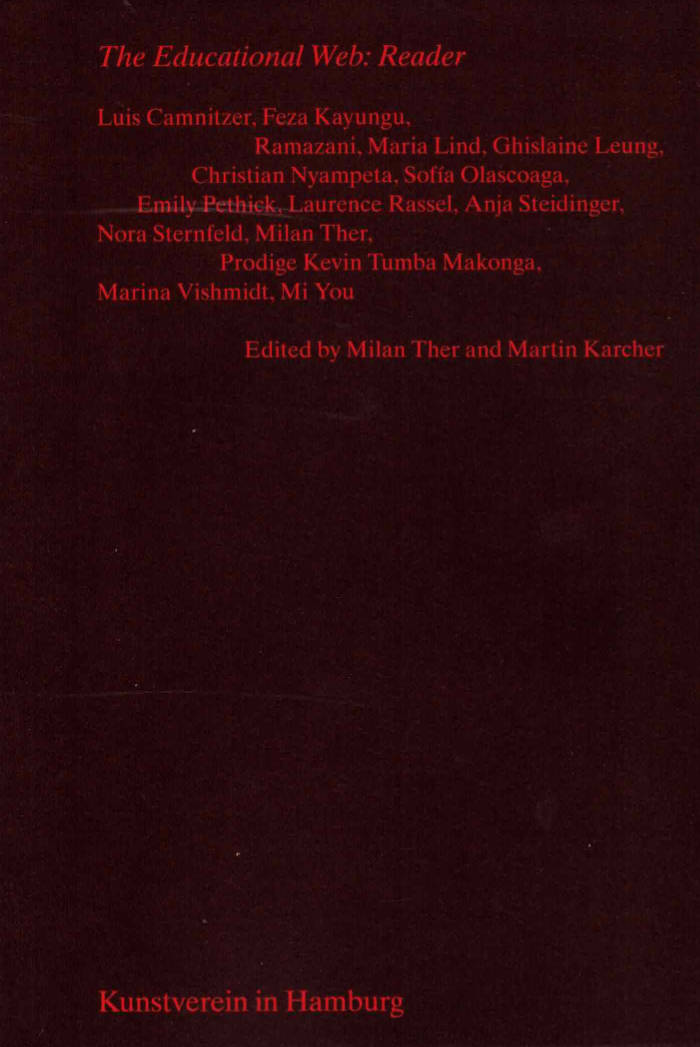
The Educational Web: Reader
A reader documenting the exhibition and symposium on eight schools, educational organisations and independent, self-organised educational programmes which see themselves as alternatives to traditional art academies and currently occupy central positions in the field of contemporary art.
The Educational Web: Reader brought together eight schools, educational organisations and independent, self-organised educational programmes at the Kunstverein in Hamburg. Often with a strong theoretical orientation, each of the programmes can be understood as a space for learning, a network and a community that does not rely on traditional curricula, but is organised around a form of immediacy and the relationship between artistic practice and local context. The programmes were invited to exhibit their own pedagogical approaches, resulting in an exploration of the interface between pedagogy, artistic practice and curatorial work.
Artists, researchers, and educators came together for the symposium on 1 and 2 July 2023 to articulate and reflect on recent developments in artist-initiated pedagogy and institutional practice. The symposium continued the questions raised by the exhibition and was expanded by a series of contributions, which are now collected for the first time in revised form in this volume, The Educational Web: Reader.
Texts by Luis Camnitzer, Feza Kayungu Ramazani, Maria Lind, Ghislaine Leung, Christian Nyampeta, Sofía Olascoaga, Emily Pethick, Laurence Rassel, Anja Steidinger, Nora Sternfeld, Prodige Kevin Tumba Makonga, Marina Vishmidt, Mi You.
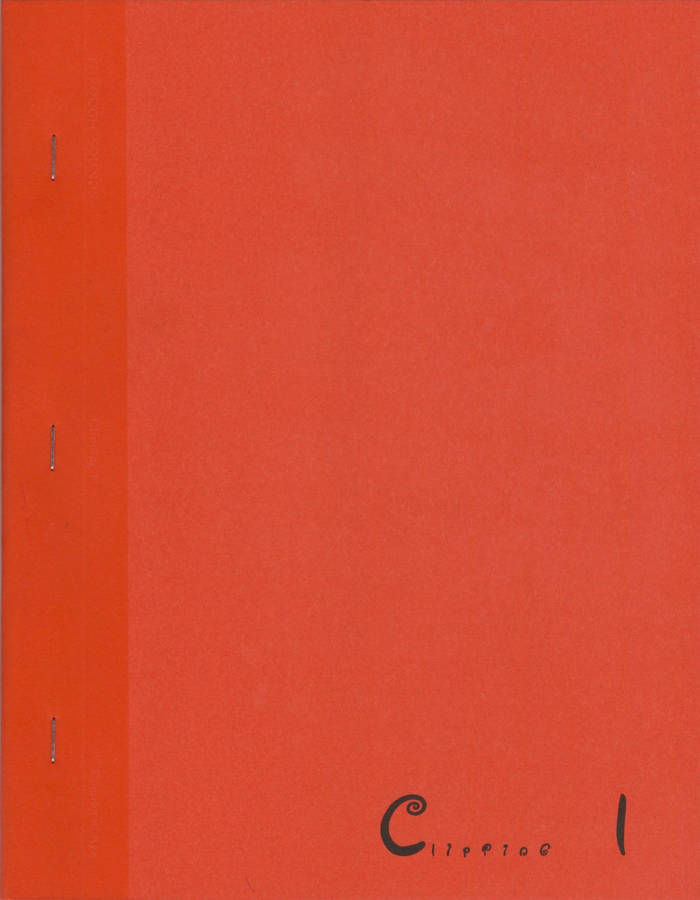
Clipping 1: Coming of Age
Federica Notari, Natasha Rijkhoff
For Clipping I: Coming of Age, editors Federica Notari and Natasha Rijkhoff compiled fragments from the events and gatherings held during the ongoing two-year collaboration between the Nieuwe Instituut’s Through Sounds project and the Rewire Festival. This co-curated, two-part programme explored the social and affective infrastructures of sound and music.
The theme of Coming of Age emerged from a desire to explore processes of becoming, not as a single transition, but as an ongoing iterative state. In this context, music acts as a connective tissue, bridging isolated experiences and communal infrastructures to form networks of shared meaning and distribution. Tracks become social objects: they carry stories, spark interactions and transform spaces.
The publication features written contributions by Emily Moore, Federica Notari, Katía Truijen and Natasha Rijkhoff. It is edited by Federica Notari and Natasha Rijkhoff, designed by Catherine Hu and Cleo Tsw, and printed and bound by No Kiss.
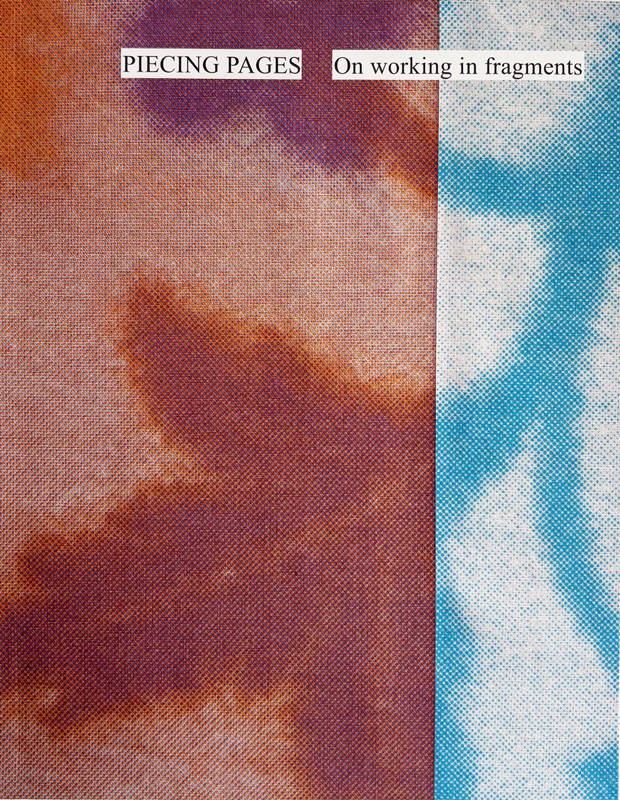
Piecing Pages
Piecing Pages is a (visual) reader which collects the work of fifteen artists, writers and designers across twelve contributions. Each contribution offers insights into a practice or research project that in some way embodies the notion of working in fragments. Together, these contributions unravel how a traditional women’s craft technique continues to influence and inform the fragmented working methods of designers, artists and writers today.
With contributions by Asefeh Tayebani, Hanka van der Voet, Jess Bailey and Sharbreon Plummer, Joke Robaard, Linda van Deursen, Lucy R. Lippard, Melissa Meyer and Miriam Schapiro, Rietlanden Women’s Office, Ronja Andersen, Rosita Kær, Susu Lee and Youngeun Sohn
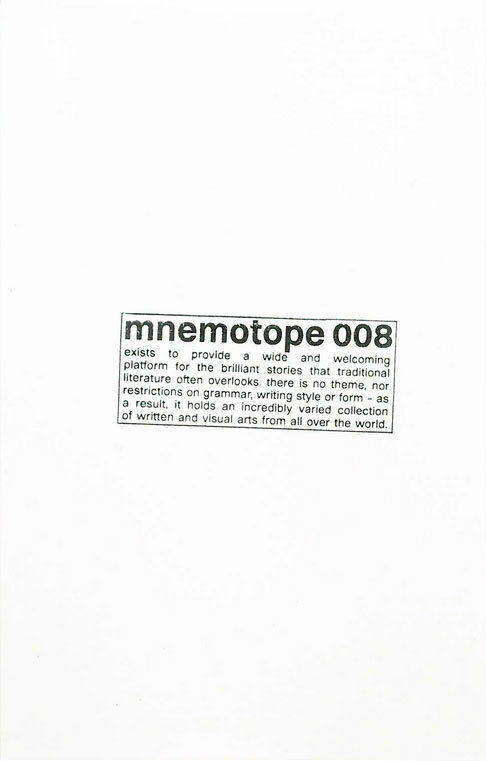
mnemotope 008
the eighth issue of mnemotope is full of sharp, vivid worlds that feel like when google maps zooms in from the satellite to street view. these pieces aren’t necessarily moralistic or allegorical, but instead simply insist that you enter into the moment and place that they conjure sharply into being. each cover is hand-stamped, so graphic placement varies.
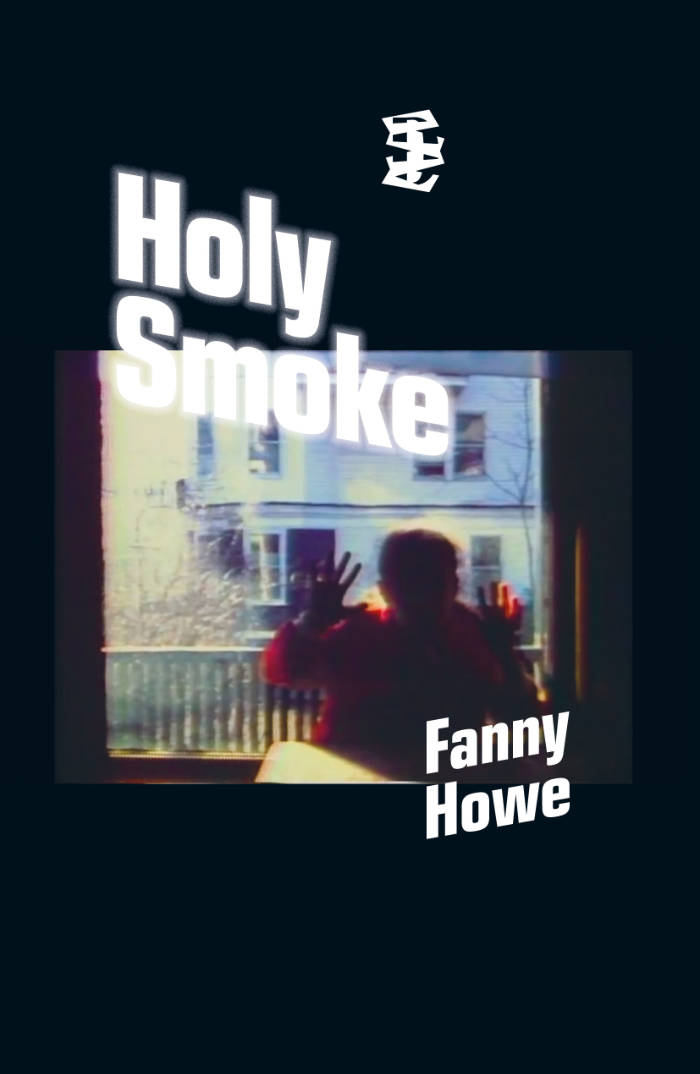
Holy Smoke
[Available for preorder. Shipping December 1st.]
Why they said, “Your real name is Anon,” I’ll never know ... But now that I have a name, I know I must write ... I’m scared, but feel it is time to be really bad.
Republished for the first time since its 1979 release, in a new revised edition, Holy Smoke is an account of the frenzy and paranoia of United States politics refracted through one individual’s psyche. With her theme of a child disappeared – and all that that phrase carries with it – Howe captures the chaos of reality in her salient mix of poetry and prose. Readers will find it hard to believe that this book, which gives fresh sense to the demand for universal human rights, was written in the last century.
At once evocative and subtly incisive, Howe’s writing seems almost like a new language, a language that has been in hiding. She can make the familiar haunting and the ordinary a provocation. She has written some of the remarkable books of her time. —Adam Phillips
A wonder of acid wit and Americana, Holy Smoke turns grief into a game and chaos into canticles. Bricolage at its best: incisive, inventive and intimate. It’s the exact work I needed in my life. —Navid Sinaki
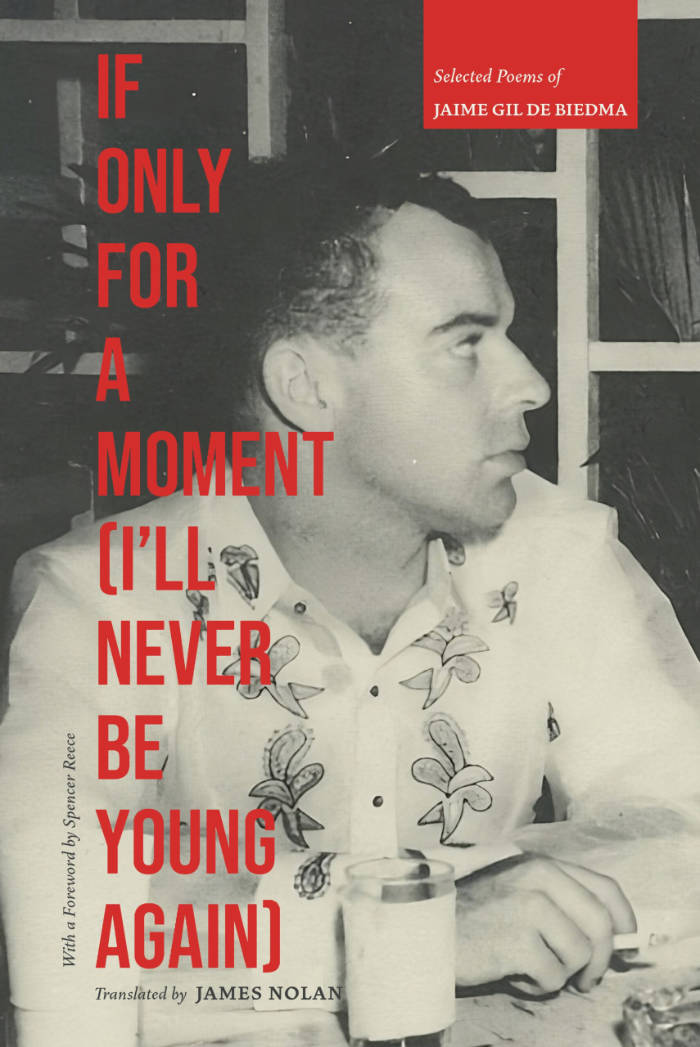
If Only For a Moment (I’ll Never Be Young Again)
Jaime Gil de Biedma, James Nolan
Jaime Gil de Biedma is the most original and influential among the poets known as the ‘50’s Generation in Spain, and is considered the greatest Spanish poet to emerge in the second half of the 20th century. His life and literary career were bracketed almost entirely by the rise and fall of Generalissimo Francisco Franco, notorious for the suppression of literature. Born in 1929, Gil de Biedma was six years old when García Lorca was murdered in Granada at the outbreak of the Civil War, and his collected poems, Las personas del verbo, first appeared in 1975, the year Franco died. What is surprising is that Gil de Biedma was a leftist, homosexual poet from the Catalan capitol, Barcelona – all of Franco’s favorite things – who not only published books of autobiographical poetry in Spain but was known as a poet of social conscience as well as erotic lyricism. Like other Spanish poets of his time, he chose his words carefully. Gil de Biedma died of AIDS in 1990.
If Only For a Moment (I’ll Never Be Young Again) consists of an extensive bilingual selection of Gil de Biedma’s poetry, including all of his most well-known work. The book additionally consists of a Foreword by Spencer Reece, Jaime Gil de Biedma’s short essay “I wanted to be the poem,” and two different essays on Gil de Biedma and the art of translation by James Nolan, the volume’s translator.
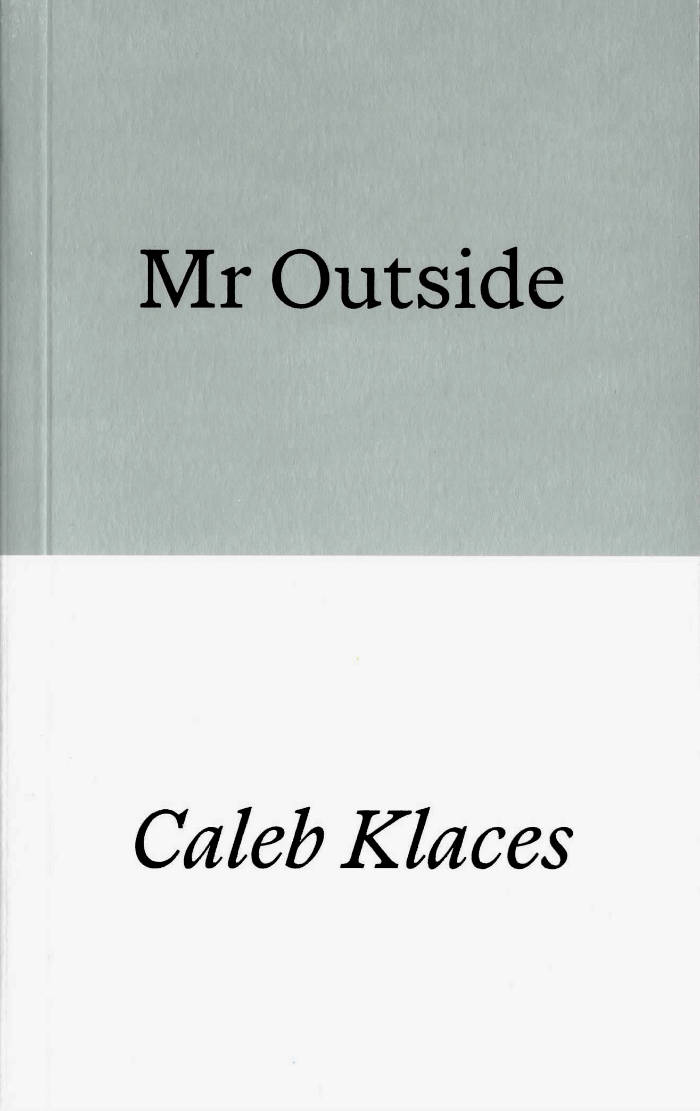
Mr. Outside
During a time of restricted movement, the narrator of Mr Outside visits his reclusive father Thomas who is packing up to move into a care home. As father and son grapple with the task, long-buried conflicts resurface. Thomas, a poet and former radical priest, slips between affection and fear, while the narrator struggles to find the words he’s been holding back. Yet amidst confusion and grief, moments of humour and connection emerge, as both men discover new ways to listen.
Told through a striking combination of text and image, Klaces’ distilled novel explores the stories we tell about our lives, intimacy in crisis, and the fragile line between reality and delusion. Based on the life of his own father, Mr Outside is poignant, profound, and unexpectedly funny; a tender meditation on endings, the limits of understanding, and the act of letting go.
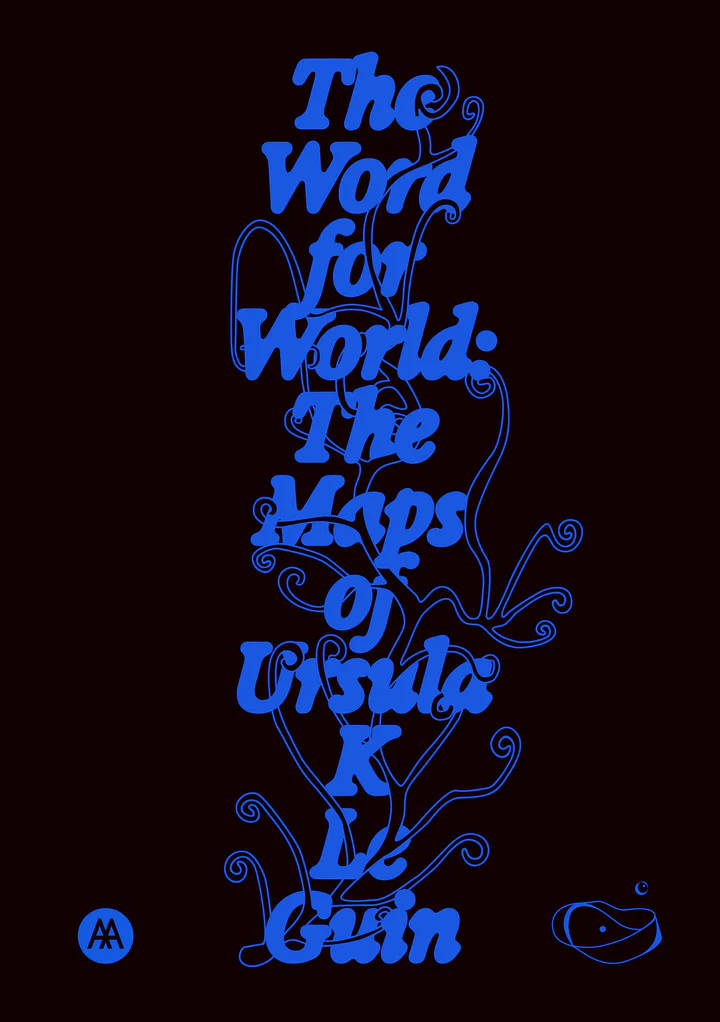
The Word for World: The Maps of Ursula K. Le Guin
When Ursula K. Le Guin started writing a new story, she would begin by drawing a map. The Word for World presents a selection of these images by the celebrated author, many of which have never been published before, to consider how her imaginary worlds enable us to re-envision our own.
Le Guin’s maps offer journeys of consciousness beyond conventional cartography, from the Rorschach-like archipelagos of Earthsea to the talismanic maps of Always Coming Home. Rather than remaining within known terrain, they open up paradigms of knowledge, exemplified by the map’s edges and how a map is read, made and re-made, together. The Word for World brings her maps together with poems, stories, interviews, recipes and essays by contributors from a variety of perspectives to enquire into the relationship between worlds and how they are represented and imagined.
Contributors: Federico Campagna, Theo Downes-Le Guin, Daniel Heath Justice, Bhanu Kapil, Canisia Lubrin, Una McCormack, David Naimon, Nisha Ramayya, Shoshone Collective, Standard Deviation, Marilyn Strathern.
Co-published by Spiral House and AA Publications to coincide with an exhibition of Ursula K. Le Guin’s maps at the Architectural Association, London, opening on 10 October 2025.
”One of the literary greats of the 20th century.” Margaret Atwood
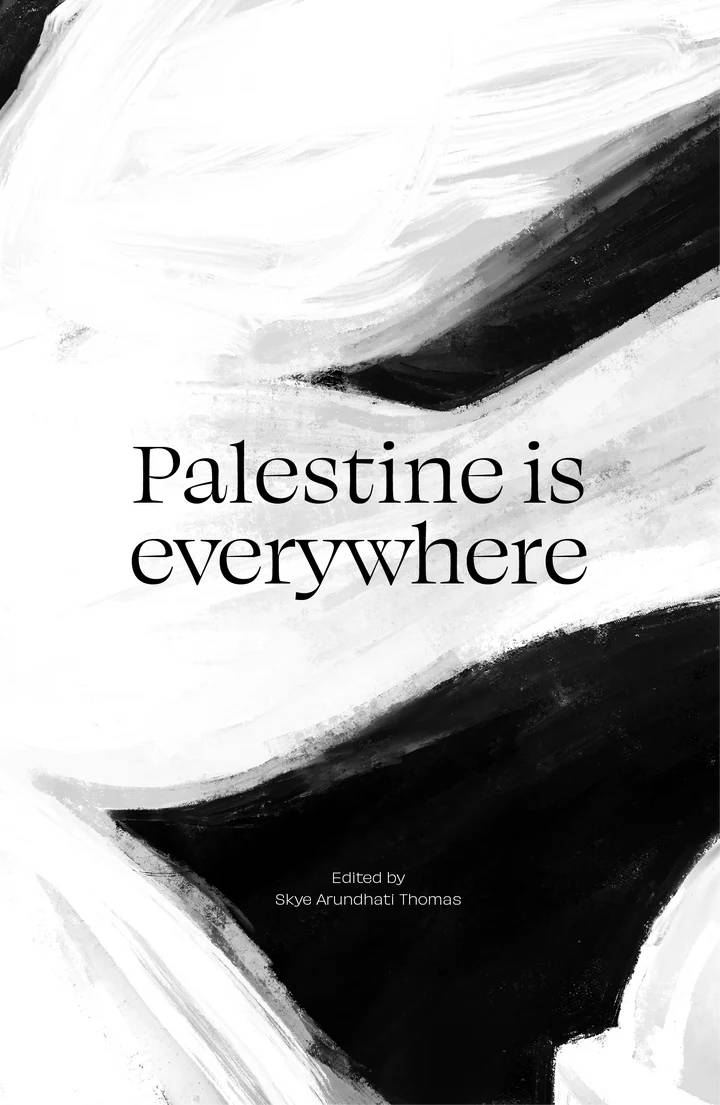
Palestine is everywhere
‘Palestine is everywhere because it names a political subject of radical universal emancipation,’ writes teacher and writer Nasser Abourahme. In Palestine is everywhere, writers, thinkers, poets and artists map the Palestinian struggle for freedom and its global resonances.
Vital dispatches from Gaza, essays, poems, protest chronicles, images and letters from prison reflect upon resistance, solidarity and the right to self-determination. Amid a world-historical moment marked by unknowability and loss, this collection offers essential reading for those interested in Palestinian liberation.
This collection is edited by Skye Arundhati Thomas, with contributions from Alaa Abd El-Fattah, Nasser Abourahme, Amal Al-Nakhala, Muhammad Al-Zaqzouq, Maisara Baroud, Ahmed Bassiouny, Houria Bouteldja, Anees Ghanima, Sahar Khalifeh, Laleh Khalili, Lujayn, Mira Mattar, Lina Meruane, Mohammed Mhawish, Nahil Mohana, Rahul Rao, Nasser Rabah, Adam Rouhana, Ahmad Zaghmouri.
Co-published by TBA21.
All royalties from this project will be donated to Medical Aid for Palestinians (MAP) and The Arab Group for the Protection of Nature (APN).
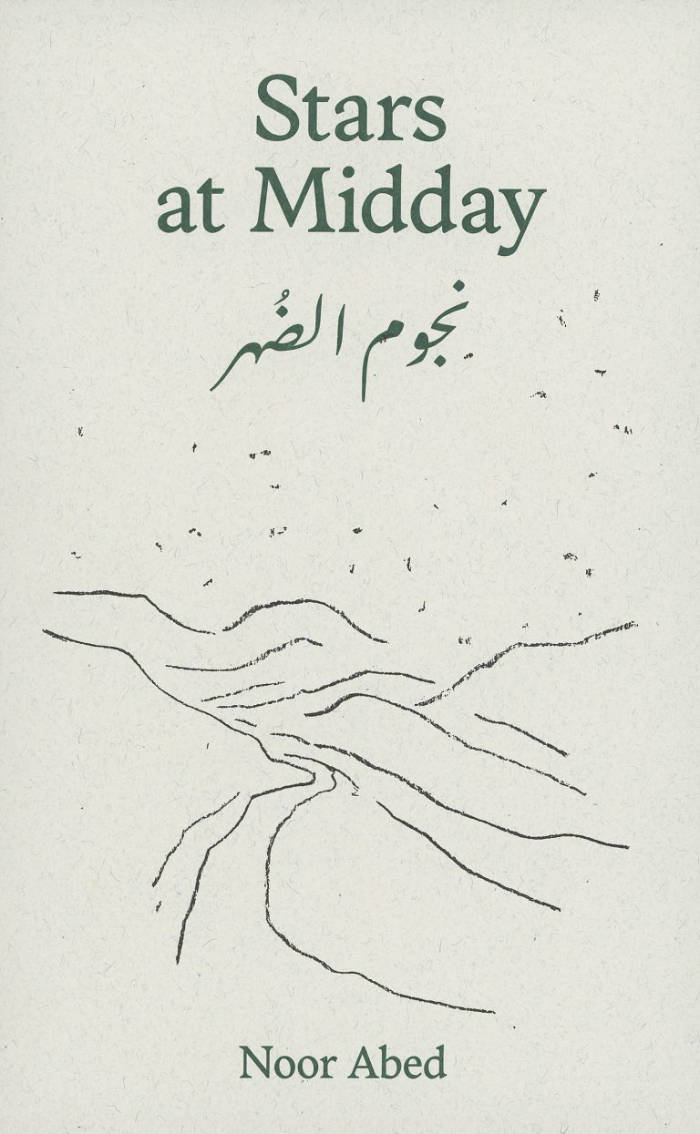
Stars at Midday –نجوم الضُهر
Stars at Midday –نجوم الضُهر is a personal diary in which the artist and filmmaker Noor Abed compiles visual and poetic notes from the production phase of her film A Night We Held Between, filmed in Palestine in 2023 with family and friends.
Like the film, the book interweaves narrative fragments, song and diaristic observations, creating a fusion of natural and composed sequences of movement, of documentary and fictional elements.
Through a choreography of bodies, sites, stories, and temporalities, Abed’s work prompts contemplation on the manifestations of social action and resistance in everyday life.
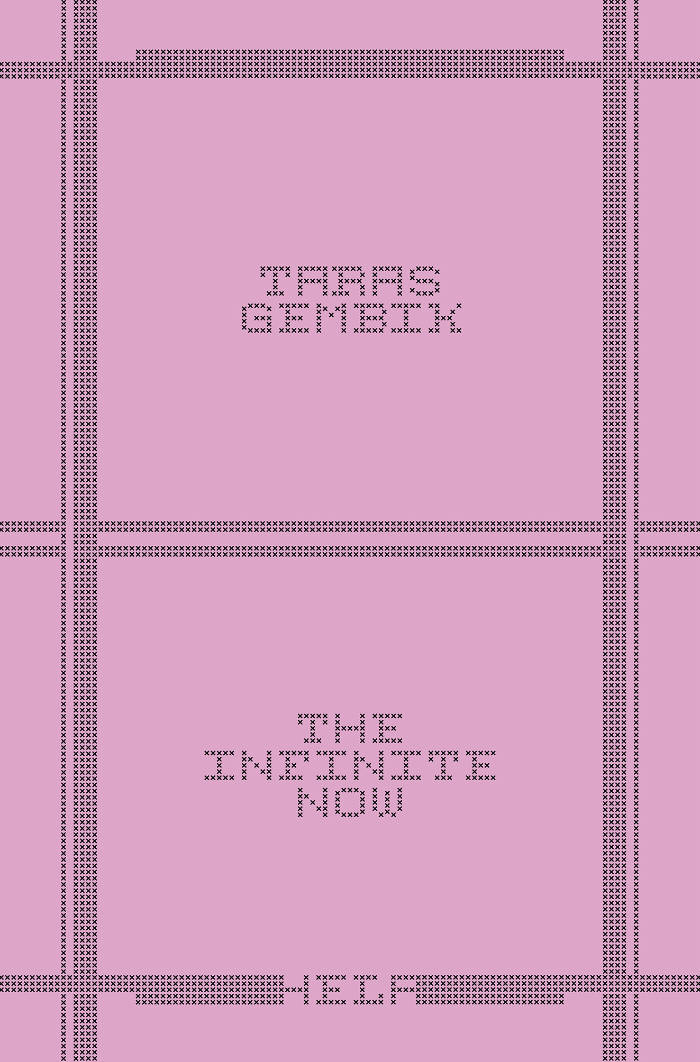
The Infinite Now
In The Infinite Now, Taras Gembik crafts an intimate meditation on solitude, faith, and the search for meaning, ten years in the making. Moving between Ukraine and Poland, these twenty-five poems trace a decade-long journey of self-discovery.
Through stark winter evenings and quiet conversations, Gembik's verses explore ancient and universal questions of existence and identity: the nature of God, the comfort of walls and communion with others, the circular path of memory. The collection transforms everyday moments into profound reflections on love, displacement, how to build community, and the possibility of finding home in transience.
Taras Gembik (born Kamin-Kashyrskyi, 1996, lives in Warsaw, Poland) is a poet, curator, performer, and activist. He is the curator of the public programme at Zachęta National Gallery of Warsaw, where in 2024 he also curated, together with Joanna Kordjak, Siergiej Parajanov's retrospective. Since 2018, he has worked with the Museum of Modern Art in Warsaw to provide a platform for refugees and those afflicted by the homelessness crisis. After Russia's invasion of Ukraine in 2022, he co-created the Sunflower Solidarity Community Centre, praised in an extensive profile in Frieze Magazine, as part of a dossier on "Forms of Resistance".
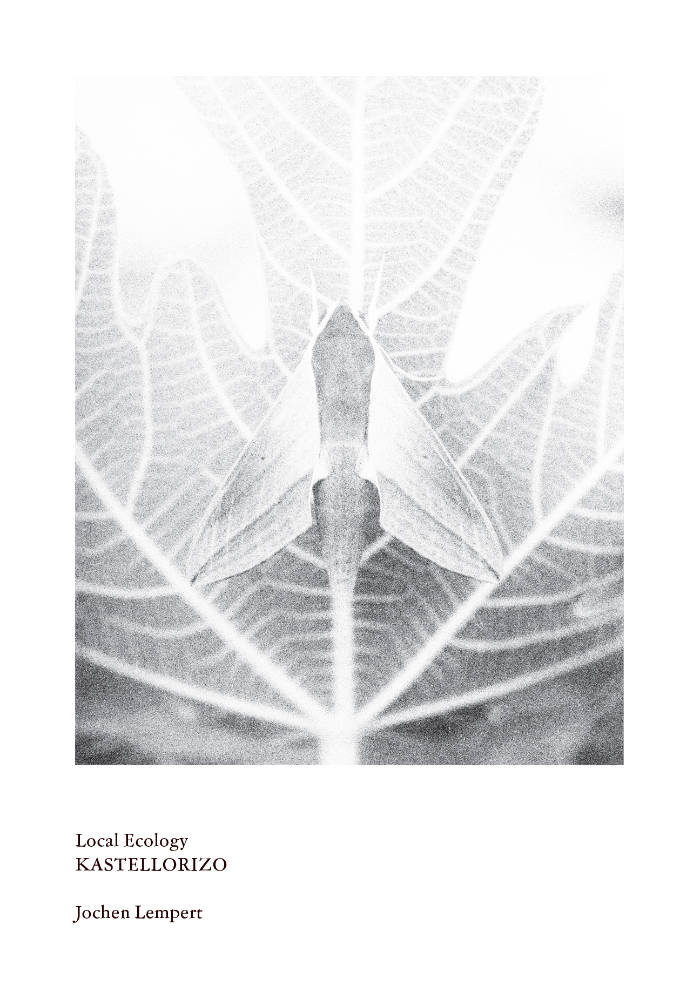
Local Ecology – Kastellorizo
Jochen Lempert brings his signature blend of scientific sensitivity and poetic vision to the remote Greek island of Kastellorizo.
Known for his black-and-white photographs and background in biology, Lempert turns his lens to the subtle presences of animal, vegetal, and mineral life on this isolated Mediterranean outpost.
Through a series of quietly observational images, Lempert documents the island's micro-ecologies with a field biologist's care and an artist's attunement to form and chance. As always, he eschews dramatic framing and post-production, relying on natural light, analog processes, and an acute sense of timing.
What emerges is a slow, intimate portrait of a place, where natural history and everyday life are entangled, where the ephemeral and the enduring coexist. Not only a record of a particular geography, Local Ecology. Kastellorizo delves into themes of observation, belonging, and the delicate ecosystems that support life in isolated places.
The photographs included in this publication were taken in the summer of 2019 during a residency at La Società delle Api in Kastellorizo, Greece, based on an idea by Cristiano Raimondi.
Jochen Lempert (born 1958 in Moers) is a German photographer. Trained as a biologist specializing in dragonflies, he began his career as a photographer in 1989, at the age of 31, developing an artistic practice based on this scientific heritage, marked by images of nature where the animal and vegetal go hand in hand.
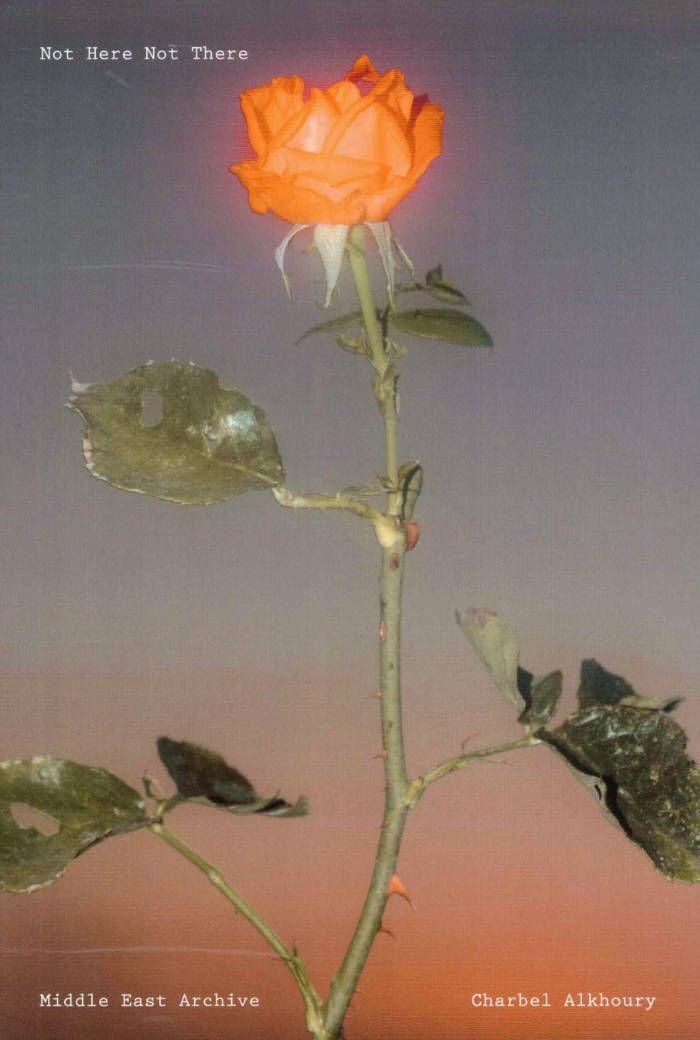
Not Here Not There
Not Here Not There presents a series of photographs taken in Beirut, Byblos, and Zouk Mosbeh, Lebanon between 2019 and 2022. The visuals focus on everyday urban scenes, architectural details, and fragmented moments from public and private spaces. The images use bright lit shots and natural light that gives the visuals a sense of tension — between stillness and movement, intimacy and distance.
Charbel Alkhoury is a Beirut-born artist and cultural practitioner based in Brussels. With a background in photography and multimedia, and a master’s degree in fine arts, his practice explores the layered narratives of cities—especially Beirut—where memory, identity, and urban transformation intersect. Working across photography, video, and installation, Alkhoury creates evocative spaces that invite reflection on history, displacement, and the emotional imprint of changing landscapes.
The book includes two essays written by Charbel Alkhoury and edited by Lamia Baladi. Translated by Mourad Nusair.
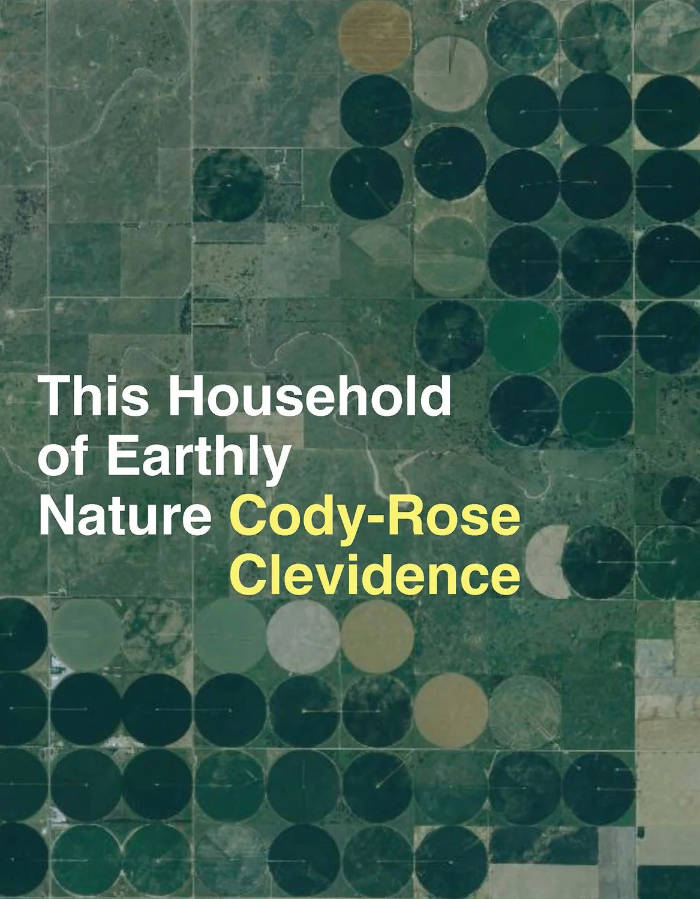
This Household of Earthly Nature: An Essay: A Year, a Life, a Country, a Global Network
In This Household of Earthly Nature poet and poetic essayist Cody-Rose Clevidence delves into the far reaches of our planet, from homestead to information theory, from ancient history to global economics to possible futures, connecting all things; Walmart, shipping lanes, what it means to have family, friends and memories, to labor, love, to ways of knowing, and all of us together inside these vast and shifting networks. Rooted firmly in the Anthropocene, in the fragmented and information-dense internet-connected world and also in their own rural daily life, this essay-poem charts a mind grappling with what it means to be alive now, in this particular time in our planet's and our species' evolution, from the domestication of the first grain to whatever is inevitably coming next.
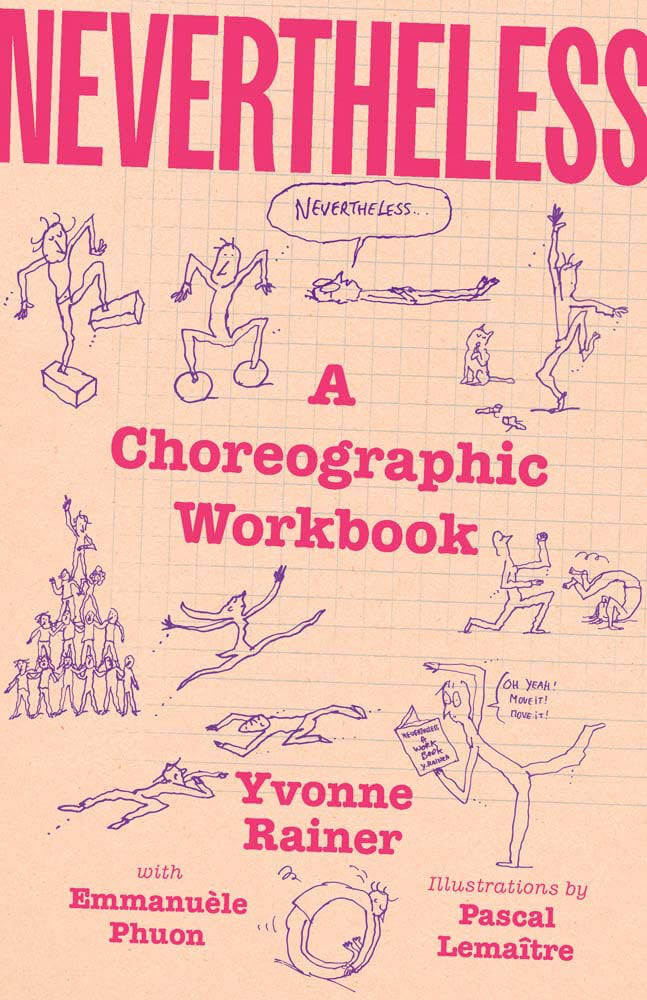
Nevertheless: A Choreographic Workbook
Yvonne Rainer, Emmanuèle Phuon
A legendary choreographer’s personal and practical guide to the art of dance-making.
Yvonne Rainer was a founding member of Judson Dance Theater, a 1960s New York artists’ collective that championed ordinary, spare movements and spontaneity. Rainer’s decades of creativity—in dance and in filmmaking—have inspired generations of avant-garde, political, and feminist choreographers. Her many works include the iconic dance Trio A and the film Hand Movie.
In this book, Rainer dancer and choreographer Emmanuèle Phuon helps Rainer gather teaching notes from her dance classes and workshops, passages from her creative journals, and her newer thoughts on movement and art, opening a window on to the life’s work of a transformative artist. With fifty prompts for improvisational movement (“39. Travel a long distance as fast as you can while making regular changes in your means of locomotion”), sly illustrations by Pascal Lemaître, and an illuminating interview with Phuon, this workbook makes Rainer’s friendly, humorous, and down&-to-earth creative practice available to everyone. Because, as Rainer says, if you can move, you are a dancer.
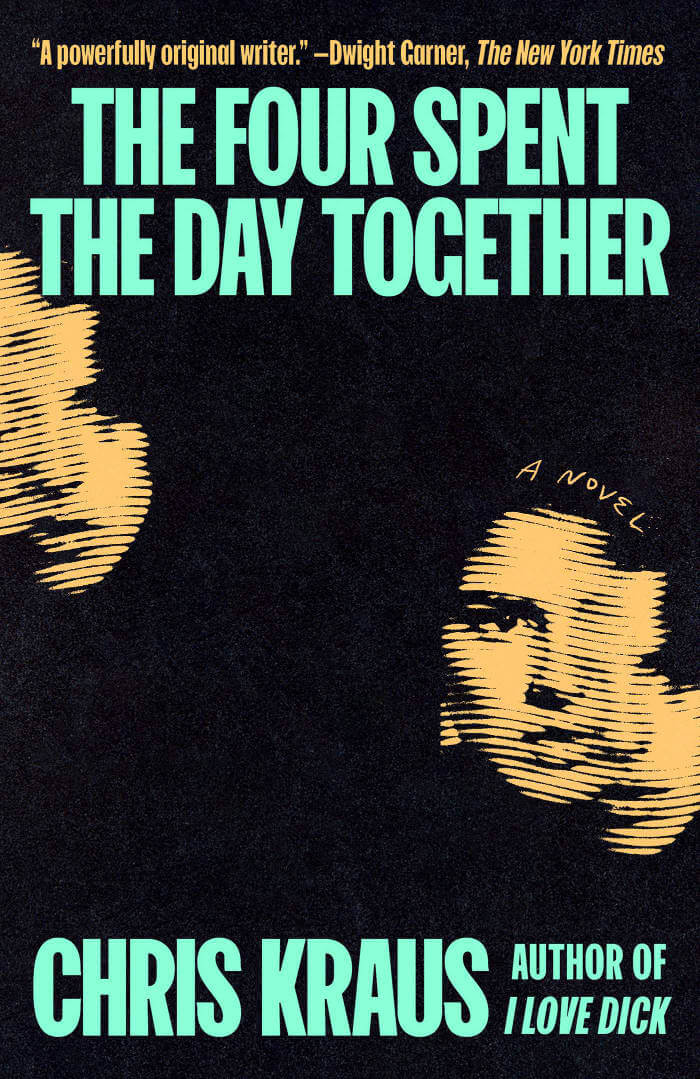
The Four Spent the Day Together
An unforgettable new novel from the “powerfully original” (Dwight Garner, The New York Times) author of the cult classic I Love Dick—a stark, witty journey into a fractured, violent America, culminating in the investigation of a teenage murder on Minnesota’s Iron Range.
On the Iron Range of northern Minnesota, at the end of the last decade, three teenagers shot and killed an older acquaintance after spending the day with him. In a cold, depressed town, on the fringes of the so-called “meth community,” the three young people were quickly arrested and imprisoned.
At the time of the murder, Catt Greene and her husband, Paul Garcia, are living nearby in a house they’d bought years earlier as a summer escape from Los Angeles. Locked into a period of personal turmoil, moving between LA and Minnesota—between the art world and the urban poverty of Paul’s addiction therapist jobs, the rural poverty of the icy, depressed Iron Range—Catt turns away from her own life and towards the murder case, which soon becomes an obsession. In her attempt to pierce through the brutality and despair surrounding the murder and to understand the teenagers’ lives, Catt is led back to the idiosyncratic, aspirational lives of her parents in the working-class Bronx and small-town, blue-collar Milford, Connecticut.
Written in three linked parts, The Four Spent the Day Together explores the tensions of unclaimed futures and unchosen circumstances in the age of social media, paralyzing interconnectedness, and the ever-widening gulf between the rich and poor.
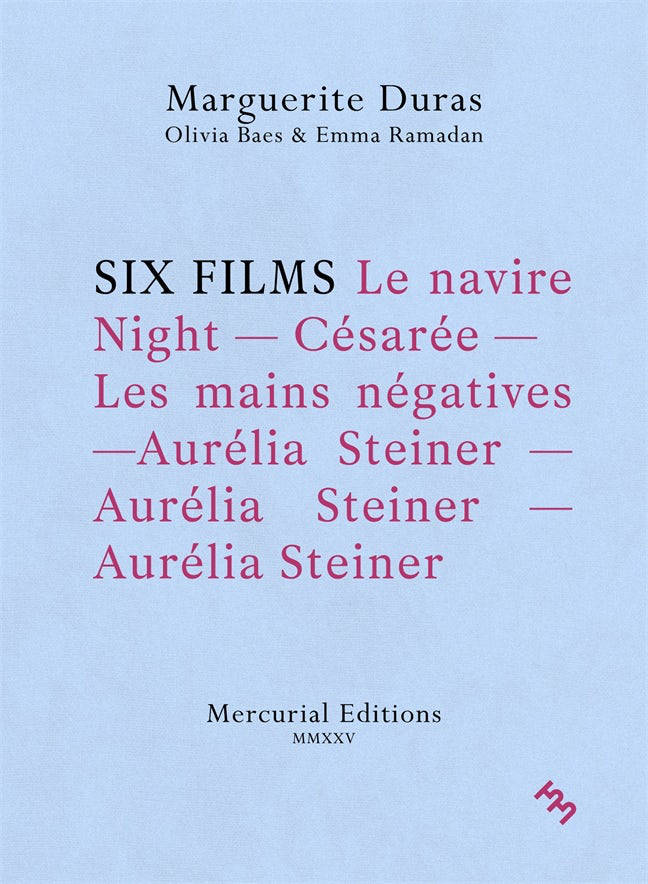
Six Films
The English-language debut of a beautiful and beguiling cycle of experimental texts by the legendary Marguerite Duras.
In the late 1970s, Marguerite Duras embarked on an experimental journey to expand the boundaries of writing and film. For Duras, writing need not be text on a page nor cinema merely images on a screen. Six Films is the result of her efforts to redefine the two arts in order to create a hybrid work. Taking narration, voiceovers, and dialogue from six of her films, Duras re-envisions them as extended prose poems and monologues, tangling with self-identity, personal relationships, colonialism, and expression as the celluoid images recede and the text becomes the film itself. Now available for the first time in English, Six Films is a document of an artist at the apex of her creative prowess.
Translated by Olivia Baes and Emma Ramadan.
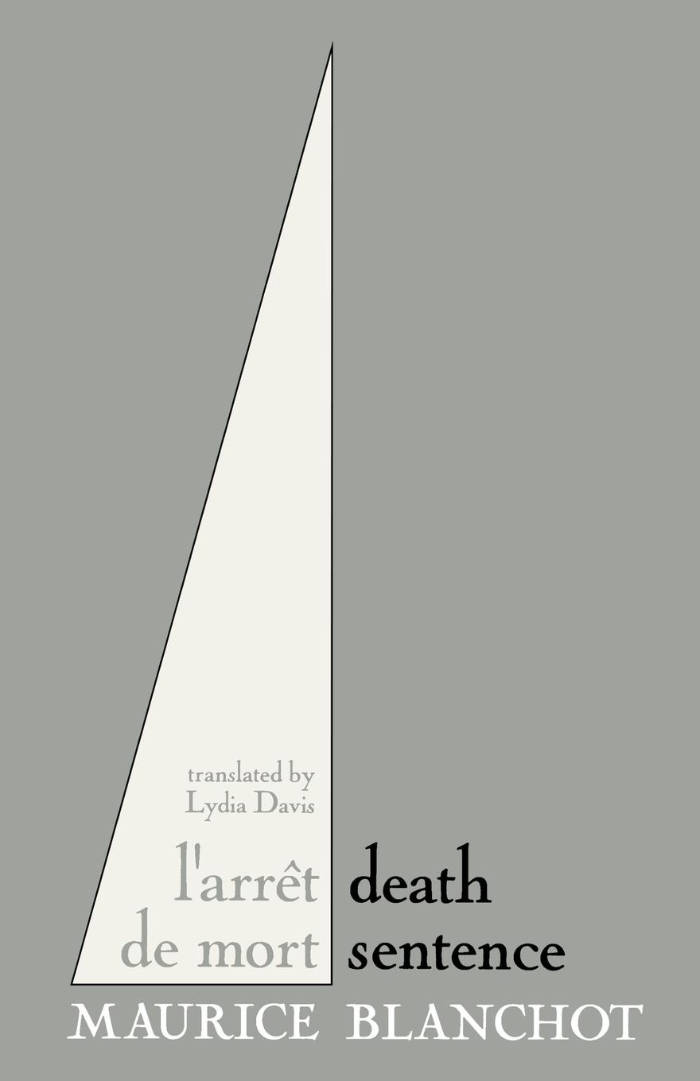
Death Sentence
This long awaited reprint of a book about which John Hollander wrote: “A masterful version of one of the most remarkable novels in any language since World War II,” is the story of the narrator’s relations with two women, one terminally ill, the other found motionless by him in a darkened room after a bomb explosion has separated them. “Through more than 40 years, the French writer Maurice Blanchot has produced an astonishing body of fiction and criticism,” writes Gilbert Sorrentino in the New York Review of Books, and John Updike in The New Yorker: “Blanchot’s prose gives an impression, like Henry James, of carrying meanings so fragile they might crumble in transit.”
Translated from the French by Lydia Davis.
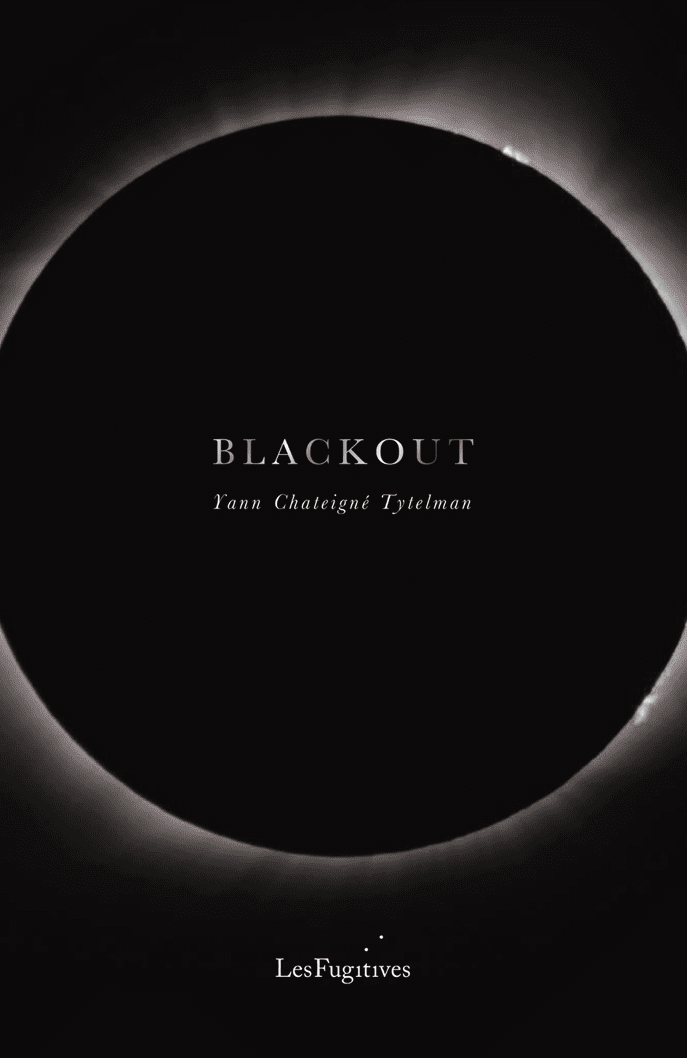
Blackout
Spring 2020. During lockdown in a mountain village with his partner and young child, Yann Chateigné Tytelman becomes haunted by the presence of his dead father. Provoked by memories of him, of their laconic relationship and of the class antagonisms that emerged between them – the father was a manual labourer while his son ‘turned his back’ and entered the art world – Chateigné Tytelman starts writing letters, piles of them, which have as their subject that most mystical, most incomprehensible of phenomena: silence.
Condensed into a series of short fragments, Blackout interweaves the letter to the father with the observations of an art theorist who surveys with precision the occurrences and experiences of silence in painting, music, literature and philosophy.

Moral Abdication: How the World Failed to Stop the Destruction of Gaza
How most Western governments and elites have supported the destruction of Gaza and silenced voices calling for the rights of Palestinians.
Providing a record of the first six months of the war waged by the Israeli army after the 7 October attacks and drawing on a rich range of international sources, Didier Fassin examines how most Western governments have acquiesced in and often contributed to the destruction, by the Israeli army, of Gaza, its homes, infrastructures, hospitals, institutions of education, and civilian population. To justify their support and prevent criticism, they have provided an official version of the events, adopting the Israeli narrative. It was largely taken up by mainstream media, which ignored the experiences and perspectives of Palestinians. Dissenting voices were silenced. A policing of language and thought was imposed. Censorship and self-censorship became normalized.
To call for a ceasefire or to demand the respect of humanitarian law was enough to prompt the ever-ready accusation of antisemitism. Exploring the multiple dimensions of the extreme inequality of lives between the two sides of the conflict and analyzing the complex geopolitical, economic and ideological stakes that underlie it, Fassin intends to constitute an archive of this moral abdication. In his view, the abandonment of the values and principles proclaimed by Western elites to be foundational will leave a deep scar in the history of the world.
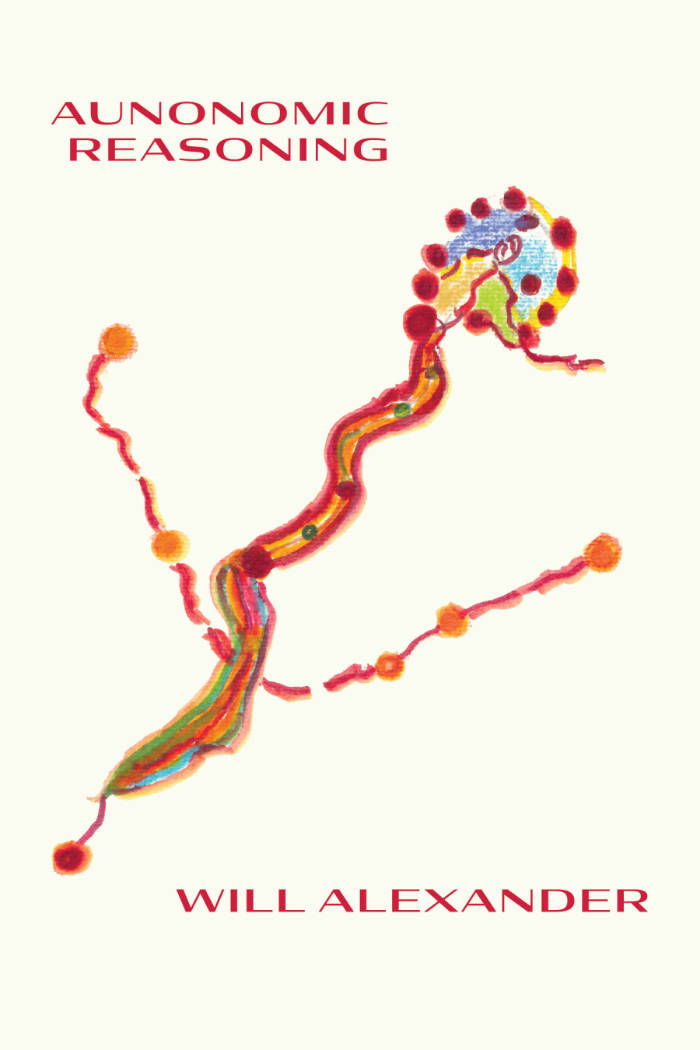
Aunonomic Reasoning
Precipitous philosophies. Synaptic-nerve narrations. Syntactic spirals. Hyper-coiled horizons. Will Alexander’s mental range has arrived. An anomalous scripting of the word “automatic,” Aunonomic Reasoning is a whirlwind of lingual torrents triggered by creative mishearing that at once exposes the occupations of orthodox surrealism, summons a voice for the scathed populace of imperial affliction, and forges new paths of phonetic potentiality to mend semantic injury. Pushing prosaic margins beyond their boundaries, these texts take on the etymological condition of the essay as “attempt” with iridescent siege, prepositional frenzy, paratactic provocation, noetic disreckoning, and a critical demand to dismantle: all of which signatures of Alexander’s unilateral poetic innovations.
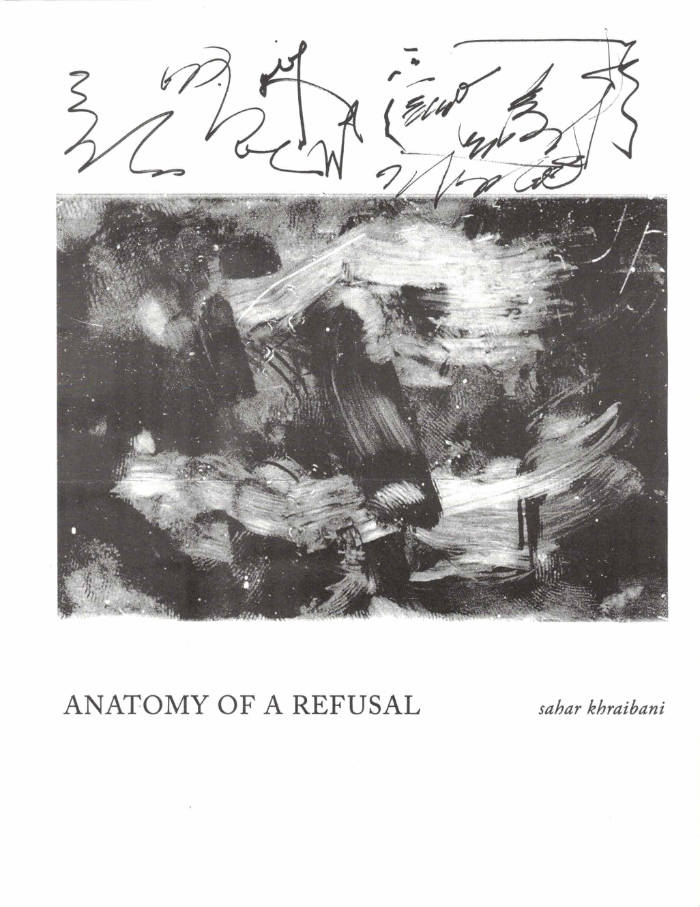
Anatomy of a Refusal
Written after the Beirut Port Explosion on August 4, 2020, when 2,750 tonnes of ammonium nitrate exploded in the commercial and residential port of Beirut after years of warning and mismanagement, Anatomy of a Refusal drifts between lineated and prose poetry, creating a transitional space of mourning. Comprised of three sections, “Mutually Assured Destruction” confronts displacement; “Blast” erases and rescribes bureaucratic documents written about the explosion, and “Deterrence” “return[s] to the place of injury.”
Intertextually poetic, Sahar Khraibani writes in conversation with other writers and philosophers to question, “who owns my language?” and “What does it mean to be in / place?" And yet, between bureaucracy and philosophy, there are moments of intimacy, friendship coexisting in the shared space of the poem—between speaker and addressee, the body and the living world—where belonging carries the weight of grief.
—Blurb written by Clarise Reichley